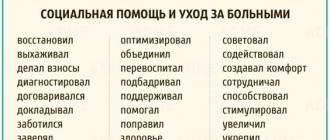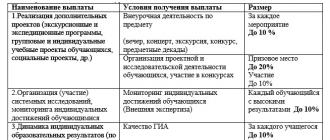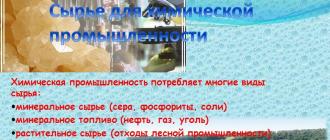
The motto of the lesson
“ Necessity is the mother of the inventions”
“ Experience is the mother of wisdom”

Henry Ford (July 30, 1863 – April 7, 1947) was
the American founder of the Ford Motor Company
and father of modern assembly lines used in mass
production. His introduction of the Model T automobile
revolutionized transportation and American industry. He
was a prolific inventor and was awarded 161 U.S. patents.
As owner of the Ford Company he became one of the richest
and best-known people in the world. He is credited
with "Fordism", that is, the mass production of large
numbers of inexpensive automobiles using the assembly line,
coupled with high wages for his workers. Ford had a global
vision, with consumerism as the key to peace. Ford did not
Believe in accountants; he amassed one of the world"s largest
fortunes without ever having his company audited under
his administration. Henry Ford"s intense commitment
to lowering costs resulted in many technical and business
innovations, including a franchise system that put a dealership
in every city in North America, and in major cities on six
continents.

Ten Great Inventors and their Inventions
Valdemar Poulsen (November 23, 1869, in Copenhagen
– July 23, 1942) was a Danish engineer. He developed
a magnetic wire recorder in 1899. The magnetic recording
was demonstrated in principle as early as 1898 by
Valdemar Poulsen in his Telegraphone. Magnetic wire
recording, and its successor, magnetic tape recording,
involve the use of a magnetizable medium which moves
past a recording head. An electrical signal, which is
analogous to the sound that is to be recorded, is fed
to the recording head, inducing a pattern of magnetization
similar to the signal. A playback head (which may be
the same as the recording head) can then pick up
the changes in the magnetic field from the tape and
convert them into an electrical signal. Poulsen obtained
a Telegraphone Patent in 1898, and with his assistant,
Peder O. Pedersen, later developed other magnetic
recorders that recorded on steel wire, tape, or disks.

Ten Great Inventors and their Inventions
was an eminent scientist, inventor and innovator who is widely
credited with the invention of the telephone. His father,
grandfather and brother had all been associated with work
on elocution and speech, and both his mother and wife were deaf,
profoundly influencing Bell"s life"s work. His research on hearing
and speech further led him to experiment with hearing devices
that eventually culminated in Bell being awarded the first U.S.
patent for the invention of the telephone in 1876. In reflection,
Bell considered his most famous invention an intrusion on his real
work as a scientist and refused to have a telephone in his study.
Upon Bell"s death, all telephones throughout the United States
"stilled their ringing for a silent minute in tribute to the man
whose yearning to communicate made them possible. Many other
inventions marked Bell"s later life including groundbreaking work
in hydrofoils and aeronautics. In 1888, Alexander Graham Bell
became one of the founding members of the National Geographic
Society.

Ten Great Inventors and their Inventions
The Wright brothers , Orville (August 19, 1871 –
January 30, 1948) and Wilbur (April 16, 1867 –
May 30, 1912), were two Americans who are generally
credited with inventing and building the world"s first
successful airplane and making the first controlled, powered
1903. In the two years afterward, the brothers developed
their flying machine into the first practical fixed-wing aircraft.
Although not the first to build and fly experimental aircraft,
the Wright brothers were the first to invent aircraft controls
that made fixed wing flight possible. The brothers" fundamental
breakthrough was their invention of "three axis-control", which
enabled the pilot to steer the aircraft effectively and to maintain
its equilibrium. This method became standard and remains standard
on fixed wing aircraft of all kinds. From the beginning of their
aeronautical work, the Wright brothers focused on unlocking the
secrets of control to conquer "the flying problem", rather than
developing more powerful engines as some other experimenters did.
Their careful wind tunnel tests produced better aeronautical data
than any before, enabling them to design and build wings and propellers
more effective than any before. Their U.S. patent 821,393 claims the
invention of a system of aerodynamic control that manipulates a flying
machine"s surfaces.

Ten Great Inventors and their Inventions
John Logie Baird (August 13, 1888 – June 14, 1946)
was a Scottish engineer and inventor of the world"s first
working television system. Although Baird"s electromechanical
system was eventually displaced by purely electronic systems
(such as those of Vladimir Zworykin and Philo Farnsworth),
his early successes demonstrating working television
broadcasts and his colour and cinema television work earn
him a prominent place in television"s invention. Baird was
born in Helensburgh, Argyll, Scotland. He was educated at
Larchfield Academy (now part of Lomond School),
Helensburgh; the Glasgow and West of Scotland Technical
College (which later became the University of Strathclyde);
and the University of Glasgow. His degree course was
interrupted by World War I and he never returned
to graduate.

Ten Great Inventors and their Inventions
Sergey Pavlovich Korolyov (often transliterated as Sergei Korolev ,
(January 12 1907, Zhy tomyr – January 14, 1966,
Moscow), was the head Soviet rocket engineer and designer during
the Space Race between the United States and the Soviet Union
in the 1950s and 1960s. He invented the R-7 rocket. Although trained
as an aircraft designer, Korolyov"s greatest strengths proved to be in
design integration, organization and strategic planning. A victim
of Stalin"s 1938 Great Purge, he was imprisoned for almost six
years, including some months in a Siberian gulag. Following his release,
he became a rocket designer and a key figure in the development of
the Soviet ICBM program. He was then appointed to lead the Soviet
space program, given a rank of Academician (Member of Soviet Academy
of Sciences), overseeing the early successes of the Sputnik and Vostok
projects. By the time he died unexpectedly in 1966, his plans to compete
with the United States to be the first nation to land a man on the Moon
had begun to be implemented. Before his death he was often referred
to only as "Chief Designer", because his name and his pivotal role in the
Soviet space program had been held to be a state secret by the
Politburo. Only many years later he was publicly acknowledged as the
lead man behind Soviet success in space.

Ten Great Inventors and their Inventions
Michael Faraday , FRS (22 September 1791 – 25 August 1867)
was an English chemist and physicist (or natural philosopher,
in the terminology of the time) who contributed to the fields
of electromagnetism and electrochemistry. Faraday studied
the magnetic field around a conductor carrying a DC electric
current, and established the basis for the magnetic field
concept in physics. He discovered electromagnetic induction,
diamagnetism, and laws of electrolysis. He established that
magnetism could affect rays of light and that there was an
underlying relationship between the two phenomena. His
inventions of electromagnetic rotary devices formed the
foundation of electric motor technology, and it was largely
due to his efforts that electricity became viable for use in
technology.

Ten Great Inventors and their Inventions
Thomas Alva Edison (February 11, 1847 – October 18, 1931)
was an American inventor and businessman who developed many
devices that greatly influenced life around the world, including
the phonograph and the long-lasting, practical electric light bulb.
Dubbed "The Wizard of Menlo Park" by a newspaper reporter, he was
one of the first inventors to apply the principles of mass production
and large teamwork to the process of invention, and therefore is often
credited with the creation of the first industrial research laboratory.
Edison is considered one of the most prolific inventors in history,
holding 1,093 U.S. patents in his name, as well as many patents
in the United Kingdom, France and Germany. He is credited with
numerous inventions that contributed to mass communication and,
in particular, telecommunications. His advanced work in these fields
was an outgrowth of his early career as a telegraph operator.
Edison originated the concept and implementation of electric-power
generation and distribution to homes, businesses, and factories –
a crucial development in the modern industrialized world. His first
power plant was on Manhattan Island, New York.

Ten Great Inventors and their Inventions
mathematician, astronomer, natural philosopher, alchemist, theologian
and one of the most influential men in human history. His Philosophi e
Naturalis Principia Mathematica, published in 1687, is considered to
be the most influential book in the history of science. In this work,
Newton described universal gravitation and the three laws of motion,
laying the groundwork for classical mechanics, which dominated the
scientific view of the physical universe for the next three centuries
and is the basis for modern engineering. Newton showed that the
motions of objects on Earth and of celestial bodies are governed by
the same set of natural laws by demonstrating the consistency between
Kepler"s laws of planetary motion and his theory of gravitation, thus
removing the last doubts about heliocentrism and advancing
the scientific revolution.

Ten Great Inventors and their Inventions
- Sanremo, Italy, 10 December 1896) was a Swedish chemist,
- engineer, innovator, armaments manufacturer and the inventor
- of dynamite. He owned Bofors, a major armaments manufacturer,
- which he had redirected from its previous role as an iron and steel
- mill. In his last will, he used his enormous fortune to institute
- the Nobel Prizes. The synthetic element nobelium was named after
- him. Nobel found that when nitroglycerin was incorporated in
- an absorbent inert substance like kieselguhr (diatomaceous earth)
- it became safer and more convenient to handle, and this mixture
- he patented in 1867 as dynamite. Nobel demonstrated his explosive
- for the first time that year, at a quarry in Redhill, Surrey, England.
- Nobel later on combined nitroglycerin with another explosive,
- gun-cotton, and obtained a transparent, jelly-like substance,
- which was a more powerful explosive than dynamite. Gelignite,
- or blasting gelatin as it was branded, was patented in 1876, and
- was followed by a host of similar combinations, modified by the
- addition of potassium nitrate and various other substances.



John Logie Baird

… didn’t he?
… , wasn’t he?

Television in Our Life
The first commercial television broadcast was made on April 20, 1939 by Radio Corporation of America (RCA). Since 1939, it has become one of the most important facts of modern life. Television is very much a part of the modern world. Its effects are felt all over the world.
Television is a reflection of modern world, say some people. It shows contemporary society. It affects customs and culture, others way. Television is bad for culture because it keeps culture from growing, say still others.
Good or bad, television is difficult to avoid. Its pictures enter homes, stores, airports and factories. It is here to stay!
- The first commercial television broadcast was made on April 20, 1939 by Radio Corporation of America (RCA). Since 1939, it has become one of the most important facts of modern life. Television is very much a part of the modern world. Its effects are felt all over the world. Television is a reflection of modern world, say some people. It shows contemporary society. It affects customs and culture, others way. Television is bad for culture because it keeps culture from growing, say still others. Good or bad, television is difficult to avoid. Its pictures enter homes, stores, airports and factories. It is here to stay!

- 1). 1,2,3
- 2). 1-corporation, 2-facts, 3-world, 4-reflection, 5-society, 6-culture
- 3). 1c, 2b, 3a, 4c

Advantages and Disadvantages of Television
- Television is one of the greatest achievements of the 20 th century. It is the most popular part of mass media. Television is the easiest and the cheapest source of information. It is an advantage.
- One of the positive features about TV is that it educates us. There are programs devoted to specialized subjects such as life of animals or plants, science, politics and many others. Watching such programs we learn a lot of useful and interesting information.
- TV gives us opportunity to travel around the world without getting up from the sofa. We can learn about life of people in different countries, their customs and traditions and we don’t pay for it.
- There are very exciting, funny and humorous programs, concerts full of wonderful music and songs especially on holidays. So, television entertains us and we like it because it makes us forget our everyday problems.
- One of the disadvantages is that television sometimes substitutes our nearest and dearest. It prevents us from communicating with our friends and relatives.
- Today you can see many films on TV which are filled with cruel and violent scenes that is very bad especially for children and teenagers.
- Watching TV too much may be dangerous for your eyesight. It is a disadvantage.

1 слайд
Изобретения в жизни человека Работу выполнил Гафаров Артём ученик 4 Б класса МБОУ г.Мурманска гимназия № 2 Научные руководители: Пахтусова Елена Ильинична Сиротина Светлана Валентиновна Милина Елена Алексеевна

2 слайд

3 слайд
Что же стремительно меняет жизнь людей? 1. Развитие науки, научные открытия изменяют представления людей о мире и о возможностях человека. 2. Научные открытия позволяют умным людям находить наиболее интересное решение некоторых практических проблем. Такие решения называются изобретениями.

4 слайд
проанализировать материалы семейного архива; познакомиться с толкованием новых понятий; систематизировать полученные знания. Цель моей работы: показать на примере моей семьи, какую роль играли изобретения в России в прошлом и настоящем, кто и как работает с изобретателями. Задачи:

5 слайд
В советское время людей, которые изобретали, называли рационализаторами. Их идеи изучали в бюро рациональных предложений.

6 слайд
Мой двоюродный дедушка со стороны папы – Саттаров Агзам Гафарович – долгие годы возглавлял бюро рациональных предложений в одном из райцентров Башкирии. Саттаров Агзам Гафарович

7 слайд
Дедушка со стороны мамы – Атнабаев Камиль Ахмедович – служил в молодые годы на полуострове Рыбачий и остался в Мурманске. Этот город он очень сильно любил и делал всё для того, чтобы людям здесь работалось лучше. Атнабаев Камиль Ахмедович

8 слайд
Дедушка изобретал очень много полезных вещей. Об этом свидетельствуют Удостоверения, которые он получил за свои рацпредложения.

9 слайд
С 1966 по 1984 год Атнабаев Камиль Ахмедович был инженером-конструктором в конструкторском бюро Севрыбхолодфлота. За это время дедушка подал больше 100 рацпредложений. Дедушка с коллегами на работе.

10 слайд

11 слайд
В современной России изобретения проходят тщательную проверку в специальных патентных бюро. После этого автору выдается патент на изобретение.

12 слайд
Семейную традицию изобретать продолжила моя мама – Альбина Камильевна. Она придумала специальные школьные пособия, которые помогают лучше изучать геометрию. С этой идеей она обратилась в патентное бюро в Мурманске. Там ей помогли идею правильно оформить.

13 слайд
Очень скоро маме пришёл Патент на изобретение. Этот документ является доказательством того, что мамино изобретение – это новое слово в обучении школьников геометрии.
Цель урока: повторить, закрепить и применить знания по теме «Современные изобретения в нашей жизни»; провести презентацию проекта «Компьютер в моей жизни».
Задачи:
- познавательный аспект – знакомство с достижениями науки, с выдающимися изобретениями и их изобретателями;
- развивающий аспект - развитие способности к догадке, сравнению и сопоставлению, классификации, обобщению, критическому мышлению, выражению своего мнения, рефлексии;
- воспитательный аспект - развитие чувства гордости за культуру своей страны и других стран, формирование уважительного отношения к мнению другого человека и потребности к саморазвитию;
- учебный аспект - развитие и совершенствование умений и навыков говорения, понимания, чтения и письма.
Речевой материал: лексика и грамматические явления предыдущих уроков, дополнительные речевые образцы.
Раздаточный материал и ИКТ : мультимедийный проектор, компьютер, листы с карточками изобретений и их изобретателей, листы с дополнительными речевыми образцами, листы с дополнительным текстом.
Ход урока
I . Организационный момент. Приветствие.
You are welcome. / 1 слайд /
Good morning! I am glad to see you.
My support to you. / 2 слайд /
Just believe in youкself and do youк best.
Good luck!
II. Ход урока.
1. Сообщение темы .
So, the theme of our lesson is modern inventions in our life.
Звучат звуки разных приборов и их изображения. / 3 слайд /
Comrades, what gadgets do you or members of your family use and why?
P1-I use a computer because I can get new information, write programs, connect with my friends and enjoy myself, playing games.
…………………………………………………….. … .
2. Речевая зарядка .
T-Can you imagine our life without modern inventions?
T-Why are they so important for us?
Now, you ask each other questions and answer them
Учащиеся задают вопросы друг другу и отвечают.
3. Вырази своё мнение на утверждения своих одноклассников.
Express your opinion on your classmates’ statements. / слайды /
“I would be lost, helpless and alone without the computer, the Internet.”
“It would be the end of the world if I lost my mobile phone.”
“I can’t live without my computer.”
“No doubt, TV is the most necessary thing at our home.”
“I’m sure, iPod is a necessity rather than a luxury.”
4. Письмо. Преимущества и недостатки изобретений.
Заполнение таблицы у доски и в тетрадях.
The fact, there are advantages and disadvantages of using electric appliances.
Let’s fill up the table «Pros and Cons», two pupils come to the blackboard and the others write down in the notebooks.
P1, defend your arguments. Comrades, do you agree with P1? Have you got anything to add?
5. Контроль домашних диалогов.
At home you had to make up dialogues by your choice, let’s listen to them.
P1, P2 – примерный диалог.
What’s happened?
You see, I’ve lost my mobile phone.
You are kidding.
No, I wish I am.
What are you going to do then?
I don’t know. But I can’t live without it.
Have you told your parents?
Oh, no. They’ll kill me.
Don’t be so upset. Ask them to buy it on your birthday.
I’ll try, but my parents are against the phone. They consider it to be a waste of health, time and money.
It’s nonsense. A mobile is the necessity nowadays.
May be you’ll explain it them. I can’t.
I’ll try, of course, but I think it’s a waste of time.
How right you are.
………………………………………………………………………….
6. Презентация проекта. / слайды /
Tanya has prepared the project about her favourite gadget, which she considers to be the most important in mankind’s life.
Let’s relax, listen to her and express your opinion about the project. Tanya, will you?
7. Повторение и закрепление грамматических форм . / Simple Past Passive and Past Perfect Passive/
I see, you know a lot of inventions but do you know their inventers?
Закончите предложения . Finish my sentences.
Telephone was invented by … . /Graham Bill/
The electric light bulb was improved by … . / Thomas Alva Edison/
Penicillin was discovered by … . /Alexander Fleming/
Television was invented by … . /John Logie Baird/
The first car assembly line was created by … . /Henry Ford/
The first artificial satellite was designed by … . /Sergey Korolyev/
Работа с карточками .
Match invention, inventor, country and year looking through these cards. You may make notes in your notebooks. Look at these verbs and use them in your sentences /слайд/.
What grammar tense have you used in your sentences?
P- Simple Past Passive.
Перевод с русского на английский.
Translate my sentences into English, be attentive using grammar tense.
Идея клонирования была развита к концу 20 века.
Швейная машина была опробована к середине 19 века.
Первый пылесос был создан к 1910 году.
Первый российский автомобиль был построен к маю 1896.
Microsoft-DOS , была создана к 1982 году.
Видеомагнитофон был изобретён к 1976 году.
8. Работа с текстом .
Look trough the text and answer the questions before it.
Read the text very attentively and carry out the tasks after it.
Are They Crazy or Am I?
1 READING AND THINKING
A. Pre-reading
Look at the picture. Can you answer these questions without reading the text?
- What was this man’s name?
- Why was he famous?
- What else do you know about him?
B. Reading
Keep the questions above in mind as you read this biographical sketch.
He was one of the greatest scientists and thinkers in history. However, he was not considered very bright when he was child. When he was nine, his father told his mother he was very worried about him because he was “a little slow.” His teachers complained that he had sense of discipline and that he was a bad influence on the other students.
When he was fifteen, he was thrown out of school, but a few years later he was allowed to study mathematics and physics at a special technical university in Zurich. But even at the university, he was hardly “a good student”. He rarely attended classes, and he was often in trouble with his professors because he constantly argued with them. One of them told him: “You’re smart; extremely smart. But you have one real fault; you never let yourself be told anything!”
When he graduated from the university, he couldn’t get a job – partly because none of his professors would recommend him for one. Finally, he found one in the Swiss Patent Office in Berne.
One of his duties was writing descriptions of new inventions. This helped him learn how write clearly and simply. He later said that the only thing that made many problems in science seem difficult was the language they were described in.
In 1905, when he was only twenty-six, he published an article in a scientific journal. The article dealt with a theory which he called the Theory of Relativity. He became very famous for this theory, which concerns time and gravity and how things change when they travel at very high speeds.
All his life, he lived very simply and was totally uninterested in money, power, or fame. He could never understand why so many people admired him and wanted to meet him. He knew that most of them had never read anything he had written and that they didn’t understand his ideas. “Are they crazy or am I?” he asked.
1. Find the words in the text that mean:
- smart, quick at learning things
- not very smart or quick at learning things
- not often at all
- very often; again and again
- to get a degree and leave a school
- a part of the government that gives people the right to make and sell new inventions
- the force or pull that one object, such as a planet, has on a smaller object, such as the moon
2. Give your opinion. Do your classmates agree?
- Is there anything about the man’s childhood that surprises you?
- Do you think he was very popular with his professors at the university? Give reasons for your answer.
- He later said that his time at the Swiss Patent Office was one of the most important periods of his life.
- Why do you think he said this?
- Do you think Einstein was crazy?
III . Заключение: домашнее задание и итог.
I think, it’s high time to finish our lesson.
This text will be your homework.
Comrades, did you like our lesson and what did you like best?
Have you got any new and useful information?
Do you want to make any other notes about our lesson?
So, I’m thankful to you for your active, creative work and support.
Of course, I’ll put you good and excellent marks.
The lesson is over. You may be free. Good luck!
Великие изобретатели мира
Составила классный руководитель 7 «Б» класса – Скиданова Нина Ивановна

Выдающиеся изобретатели
Есть люди, без которых человечество попросту бы замерло в той точке, в которой оно находилось в определённый момент и никаким образом бы далее не двигалось. Это, конечно же, изобретатели .
Ведь без инноваций, без методов, предлагающих решения насущных проблем, жизнь была бы сложной, у нас не было бы ничего, к чему мы привыкли и что составляет нашу повседневную жизнь. Не было бы не только сложных устройств, вроде компьютеров, но даже и того, что мы сейчас считаем настолько простым, что не можем представить свою жизнь без этого.
Хорошим примером может послужить отопление, освещения и так далее. Именно изобретатели сделали возможным наличие столь важных вещей в нашем повседневном быту – и они продолжают развивать нашу цивилизацию, делая её всё более и более технически оснащённой, делая жизнь всё проще, удобнее и совершеннее.

Выдающиеся изобретатели
Входящие в наш топ-10 самые известные и великие изобретатели мира все как один заслуживают признания и уважения, но кто же заслуживает их в чуть большей степени, чем другие? Кто оказался наиболее влиятельным за всю историю?
Давайте попробуем с этим ознакомиться несколько более подробным образом.

10. Леонардо да Винчи
Разумеется, знаменитый изобретатель находится 10-м месте вовсе не из-за незначительности своих заслуг – просто почти все его изобретения так и не были реализованы при его жизни.
Он предвидел танки, парашюты, автомобили в их простом виде – но вот на практике, к сожалению, он так и не смог ничего реализовать.
Но его заслуги перед человечеством попросту невозможно отрицать – они просто невероятные.

9. Эдвин Лэнд
Начал изобретать этот физик ещё в 17-летнем возрасте – он тогда придумал поляризующие линзы, предназначенные для автофар.
Но на этом он не остановился – за свою жизнь им было получено 535 патентов.
Наиболее известным стал патент, касающийся знаменитого «Полароида» – первой в истории фотокамеры, которая могла проявлять снимки за считанные секунды.

8. Бенджамин Франклин
Мы знаем Франклина как очень разностороннего деятеля, но изобретения – это то, что получалось у него чуть ли не лучше всего. Он придумал вещи, без которых мы не можем представить наш современный быт.
Это громоотвод, бифокальные очки, экономичную печь и многое другое. Интересно, что он никогда не патентовал свои изобретения, считая, что они в первую очередь должны быть общедоступными – кроме того, он часто основывался в своей работе на более ранних идеях.

7. Герон Александрий
Были талантливейшие изобретатели и во времена Римской империи. Но этого, пожалуй, не смог бы обойти ни один из его современников. Именно он изобрёл насос, шприц, автоматические двери, фонтан, паровую турбину и даже примитивнейшие программируемые устройства.
Как и большинство гениев, он был не понят современниками, а подавляющая часть его изобретений и вовсе в своё время были отвергнуты целиком.

6. Джером Хал Лемелсон
Удивительный случай, когда человек являлся одним из наиболее выдающихся изобретателей, а его имя абсолютно не на слуху, а ведь за свою жизнь он имел более 600 патентов. Без его инноваций не были бы созданы аудио-и видеокассеты, промышленные роботы, радиотелефоны, факсы и так далее.
У него также был очень немалый вклад в развитие медицины настолько был разносторонний и талантливый изобретатель – притом, совершенно независимый.

5. Джордж Вестингауз
Этот человек является владельцем более четырёх сотен патентов. Наиболее важные его изобретения – это тормозные системы для железнодорожных составов. Он изначально изобрёл паровой тормоз, затем воздушный, а после этого тормоз с автоматическим управлением.
И до сих пор в транспорте применяются его системы, просто немного модифицированные. Он также очень сильно повлиял на развитие двигателей, амортизаторов и других важных систем транспорта.

4. Александр Грэм Белл
Массово Белл известен в первую очередь как изобретатель первого телефона. Также изобрёл устройства, помогающие в обнаружении айсбергов, простейший слуховой аппарат, металлодетектор, электрическое фортепиано, участвовал в создании одного из первых аэропланов.
Не менее важно то, что он ничуть не меньше вкладывался и в поддержку молодых, но подающих надежды изобретателей – и они также создали немало очень полезного.

3. Никола Тесла
Мало чьё имя обросло таким впечатляющим количеством легенд и домыслов. Но если оставить в стороне приписываемую ему мистику, он важен тем, что приблизился к созданию массового распространения электроэнергии.
Его наработки применялись в разных сферах – например, на их основе был создан радар, также он сделал свой вклад в развитие робототехники, баллистики и многого другого – редкий и исключительный талант.

Э того человека называют «наиболее выдающийся изобретатель», так как мало кто был продуктивнее, чем он – более тысячи патентов.
Хотя большая их часть принадлежала работающим на него людям, а не ему лично, но грамотно управлять изобретателями ничуть не менее сложно, чем лично заниматься изобретением.
2. Томас Эдисон
Да и электрификация, кинескоп, фонограф и электрические лампочки – это то, чем он прославился – и сложно представить, как бы мы сейчас существовали без этого.

Первым быть всегда сложно. В древние времена не было современных возможностей и инструментов, потому достижения Архимеда поражают – число Пи, осадные орудия, архимедов винт и так далее – многие его изобретения являются значимыми и в настоящее время.
1. Архимед
Это даёт возможность смело заявлять, что Архимед – самый лучший изобретатель из всех, когда-либо существовавших. Он опередил своё время на сотни лет – потому он и является столь великим.

ИЗОБРЕТАТЬ – ЭТО ТАК ПРОСТО! ЭТО ТАК СЛОЖНО!
- ИЗОБРЕТЕНИЕ. Чтобы то или иное новшество было признано изобретением, оно должно обладать четырьмя качествами :
- быть техническим решением задачи,
- быть новым,
- иметь существенные отличия от уже известного,
- давать полезный эффект.
Если нет новых качеств, новых (и притом существенных, значительных) отличий - нет и изобретения.
- Часто изобретение путают с открытием. Изобрести можно только то, чего раньше не было.
Открыть - значит обнаружить то, что уже существовало в природе, но до этого не было известно. Всемирное тяготение, например, нельзя изобрести, его можно было только открыть, оно существовало всегда. Законы Ньютона, закон Ома, разложение воды на водород и кислород, клеточное строение растений – всё это открытия.

А теперь попробуйте сами определить, что из перечисленного было открытием, а что изобретением:
- Токарный станок
- Выплавка из чугуна стали
- Инерция тел
- Маятник часов
- Зависимость колебаний маятника от его длины
- Парус
- Реактивный двигатель
- Притяжение тел

Задание для изобретения:
- Чтобы что-то изобрести, необходимо решить техническую задачу.
- Предлагаю вам следующую задачу:
Во время летних каникул в школе некому поливать цветы. Как сделать так, чтобы, когда 1 сентября вы придёте на занятия, цветы не засохли?
ИКТ : Нужно сделать так, чтобы цветы сами себя поливали.
- Жду от вас изобретений.

Technological progress has merely provided
us with two more efficient means for going
backwards.
(Aldous Huxley, English author)
Men are only as good as their technical
development allows them to be.
(George Orwell)


Microwave oven
Vacuum cleaner
Sewing machine
Dishwasher
Washing machine


DVD player radio cassette player
camcorder laptop
MP3 player digital camera
Walkman video mobile phone
PDA (personal digital assistant) CD player
Are you keen on technology?
What kinds of high tech gadgets do you own?
What do you use them for?

Ban mobile phones in schools!
Do you agree?
What reasons can you think of it?
Can you think of any opposing viewpoints?

… .........., although allowing mobiles in schools can be beneficial to a certain extent, it seems to me that they are an unnecessary distraction, especially in class.
… ........... there are possible risks to the safety and general welfare of students if they are allowed to bring their mobiles to school. There have been quite a few cases, for instance, of students being attacked and robbed of their phones on their way to and from school. In addition, the classroom should not be used as a place to show off possessions.
… .......... they can be a serious distraction in classrooms. It is impossible for teachers and students to focus on classwork if there are constant interruptions from mobile phones ringing. Moreover, students cannot listen to the teacher and concentrate fully on their work if they are sending text messages or playing games.
For several years now, schools have debated whether or not pupils should be allowed to bring their mobile phones to school. I personally believe that it is better for students to leave them at home.
… ............ however, there are times when it can be useful for students to have mobiles at school. For example, some parents prefer their children to have their phones with them so that they contact each other during the day in case of an emergency.


One machine can do the work of fifty
ordinary men. No machine can do the
work of one extraordinary man.
(Elbert Hubbard)





